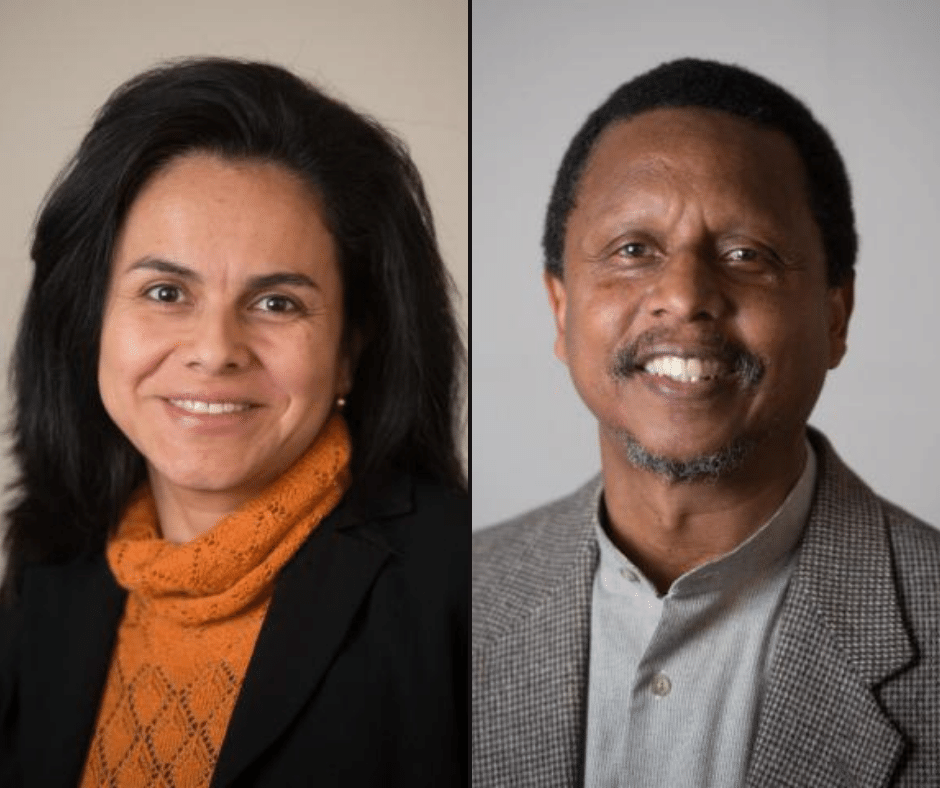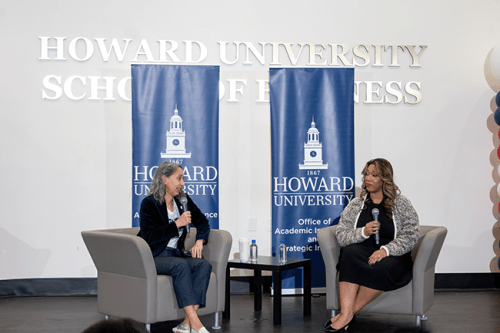WASHINGTON - Claudia Marin, Ph.D., P.E., professor of Civil and Environmental Engineering in the College of Engineering and Architecture, is leading a National Science Foundation (NSF)-funded Convergence Accelerator team to develop an “Intelligent Surveillance Platform for Damage Detection and Localization of Civil Infrastructure.”
 The NSF awarded Marin a $760,000 grant for over nine months for Phase I of a two-phased project through the NSF Convergence Accelerator program. Howard University is the institutional lead in collaboration with the University of Kentucky, Southern Illinois University Carbondale, and the U.S. Army Engineer Research and Development Center (ERDC). Howard University Architecture Professor Bradford Grant (pictured right) will be contributing to the research alongside Marin.
The NSF awarded Marin a $760,000 grant for over nine months for Phase I of a two-phased project through the NSF Convergence Accelerator program. Howard University is the institutional lead in collaboration with the University of Kentucky, Southern Illinois University Carbondale, and the U.S. Army Engineer Research and Development Center (ERDC). Howard University Architecture Professor Bradford Grant (pictured right) will be contributing to the research alongside Marin.
“Many simple structures, ranging from transmission and communication towers, residential and office buildings, solar structures, chimneys, and even trees, can fail under earthquakes and strong wind and cause tremendous disruption. The envisioned damage assessment platform will provide data to timely inform decision-makers on possible damage so actions can be taken to prevent and mitigate the impact of those failures,” said Marin.
The NSF Convergence Accelerator program will support use-inspired, team-based, multidisciplinary strategies that address challenges of national importance and will produce deliverables of value to society at an accelerated pace. The deliverables of this project have the potential to reduce the societal and economic impact of aging, deterioration, and extreme events on civil infrastructure by facilitating widespread monitoring and condition assessment of constructed structures. The development of accurate, field-calibrated damage detection tools is needed to reduce the theory-to-practice gap.
“This project will provide leading predictive measures to better ensure the health and longevity of our buildings and city’s infrastructure. Working with our diverse team also highlights the importance and advantage of interdisciplinary and collaborative research,” said Grant.
This project will integrate advances in machine learning and pattern recognition disciplines with physics-based reasoning to develop a novel, accurate, field-calibrated and verified computational platform for on-site monitoring of civil infrastructure. The result of this project is an intelligent computational platform consisting of data and algorithms for video-based damage detection and monitoring of civil engineering structures. Monitoring the health of civil infrastructure to allow prioritization of maintenance and replacement is of great social importance. Phase I will focus on the selection of the benchmark structures, collection of data, and the development of a prototype of the platform, which will be field calibrated in Phase II. Selected teams from Phase I will proceed to Phase II, with potential funding up to $5 million for 24 months.
“Dr. Marin and her multi-institutional research team are in the vanguard on matters of vital national and global infrastructure concerns. We are extremely grateful for her research coupled with the NSF support,” said Bruce Jones, Ph.D., Howard University professor and vice president of Research.
###
(Photo: Headshots of Claudia Marin, Ph.D., P.E., (left), Bradford Grant (right))
About Howard University
Founded in 1867, Howard University is a private, research university that is comprised of 13 schools and colleges. Students pursue studies in more than 120 areas leading to undergraduate, graduate and professional degrees. The University operates with a commitment to Excellence in Truth and Service and has produced one Schwarzman Scholar, three Marshall Scholars, four Rhodes Scholars, 11 Truman Scholars, 25 Pickering Fellows and more than 165 Fulbright Scholars. Howard also produces more on-campus African-American Ph.D. recipients than any other university in the United States. For more information on Howard University, visit www.howard.edu
Media Contact: Imani Pope-Johns, Imani.popejohns@howard.edu




